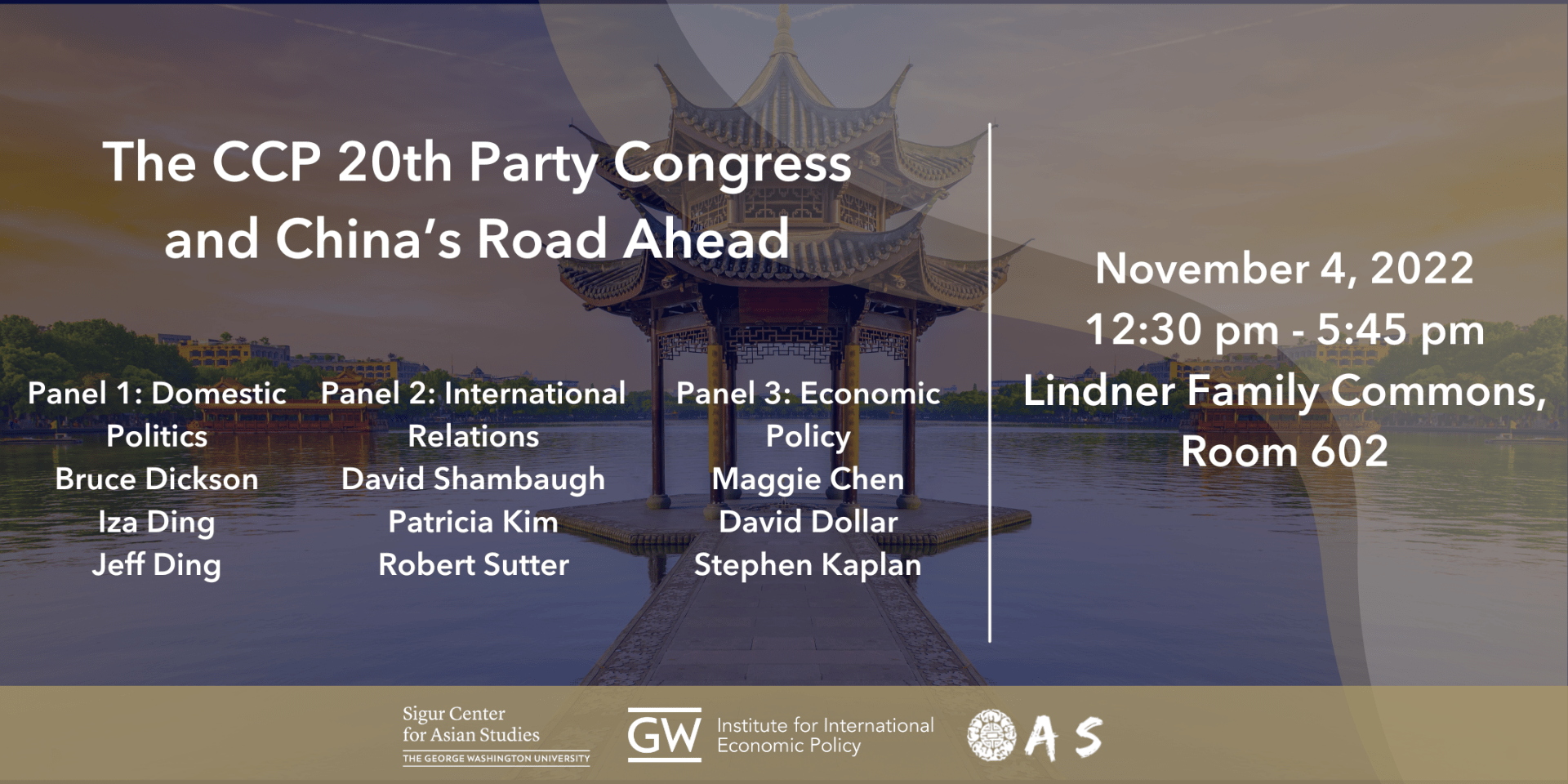Friday, November 4, 2022
12:30 – 5:45 PM ET
Lindner Family Commons, Room 602
Elliott School of International Affairs
1957 E ST NW, Washington, DC 20052
Critical questions about China’s future have swirled around the CCP’s 20th Party Congress: What will Xi Jinping’s third term mean for Chinese domestic politics? What are China’s intentions for Taiwan? How will the party manage slowing economic growth along with mounting demographic and environmental problems? The Sigur Center for Asian Studies will host a half-day congress where leading experts from GW’s distinguished China faculty and top scholars from other institutions seek to address these questions. The event will be in person only and open to the general public. Brief presentations will be followed by extended opportunities for Q&A with the audience.
Registration is free and open to the public. This event is IN-PERSON only.
This event will be recorded and will be available on the Sigur Center YouTube channel after the event.
Speakers
Panel 1: Domestic Politics
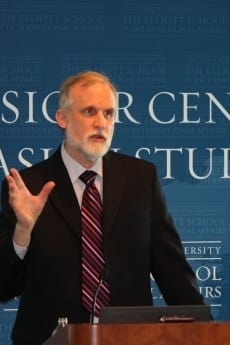
Professor Dickson received his B.A. in political science and English literature, his M.A. in Chinese Studies, and his Ph.D. in political science from the University of Michigan. He joined the faculty of The George Washington University and the Elliott School in 1993.
Professor Dickson’s research and teaching focus on political dynamics in China, especially the adaptability of the Chinese Communist Party and the regime it governs. In addition to courses on China, he also teaches on comparative politics and authoritarianism.
His current research examines the political consequences of economic reform in China, the Chinese Communist Party’s evolving strategy for survival, and the changing relationship between state and society. His research has been supported by the National Science Foundation, the Smith Richardson Foundation, the US Institute of Peace, and the Woodrow Wilson International Center for Scholars.
Professor Iza Ding is an Assistant Professor in the Political Science Department at the University of Pittsburgh, with a courtesy appointment in Public Policy at the Graduate School of Public and International Affairs. In 2019-2020, she was a Visiting Assistant Professor in Political Science and a Visiting Associate at the International Institute at the University of Michigan.
Professor Ding’s research explores the paradoxes and pushbacks attending economic, political, and cultural modernization, such as creative resistance against institutional rigidities, lingering moral traditions against legal development, enduring historical memories against rapid socioeconomic transformations, and humans’ simultaneous degradation of nature and attachment to nature. Her book The Performative State: Public Scrutiny and Environmental Governance in China has been recently released by Cornell University Press.
Professor Ding received her Ph.D. in Government from Harvard University, and her B.A. in Political Science and Russian and Eastern European Studies from the University of Michigan.
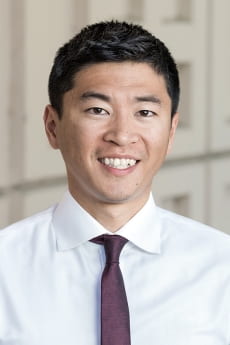
Professor Jeffrey Ding is an Assistant Professor of Political Science at George Washington University. Previously, he was a postdoctoral fellow at Stanford’s Center for International Security and Cooperation, sponsored by Stanford’s Institute for Human-Centered Artificial Intelligence.
Professor Ding’s research agenda centers on technological change and international politics. His dissertation investigates how past technological revolutions influenced the rise and fall of great powers, with implications for U.S.-China competition in emerging technologies like AI. Other research projects tackle how states should identify strategic technologies, assessments of national scientific and technological capabilities, and interstate cooperation on nuclear safety and security technologies. His work has been published in Foreign Affairs, Security Studies, The Washington Post, and other outlets.
Professor Ding received his Ph.D. in 2021 from the University of Oxford, where he studied as a Rhodes Scholar. Previously, Profesor Ding worked as a researcher for Georgetown’s Center for Security and Emerging Technology and Oxford’s Centre for the Governance of AI at the University of Oxford. Growing up in Iowa City, he became a lifelong Hawkeye fan and attended the University of Iowa for his undergraduate studies.
Panel 2: International Relations
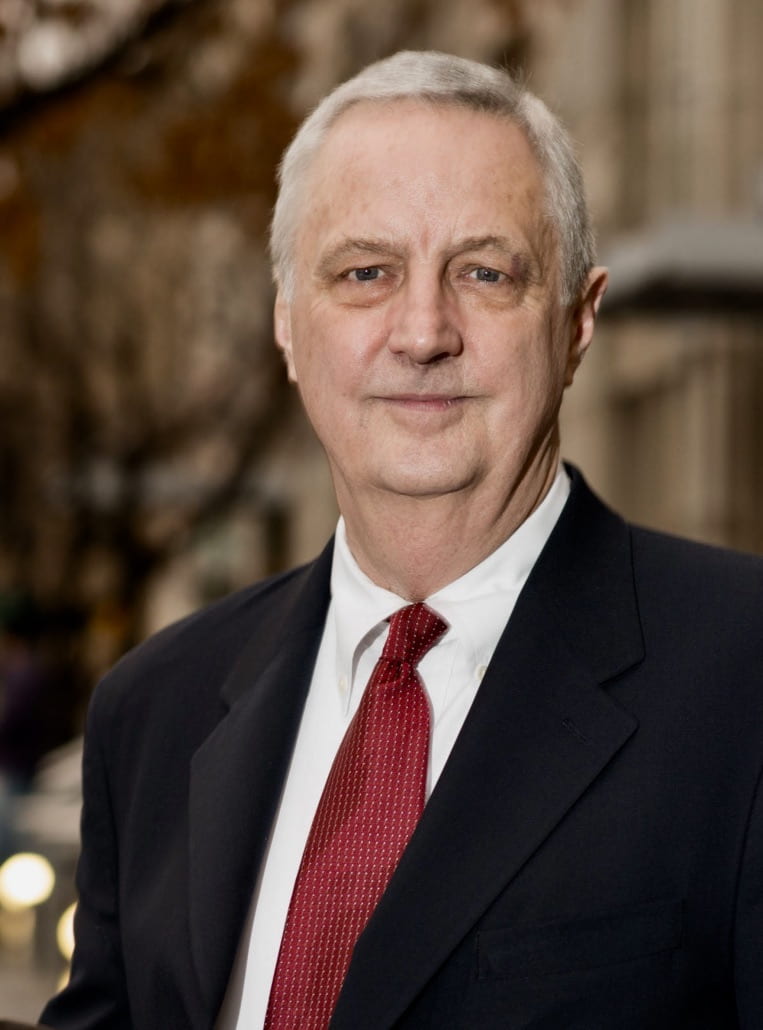
David Shambaugh is an internationally recognized authority and award-winning author on contemporary China and the international relations of Asia. He is the Gaston Sigur Professor of Asian Studies, Political Science & International Affairs, and the founding Director of the China Policy Program in the Elliott School of International Affairs at George Washington University. He previously served in the Department of State and on the National Security Council staff during the Carter administration (1977-1979). From 1996-2016 he was also a Nonresident Senior Fellow in the Foreign Policy Studies Program at The Brookings Institution. Professor Shambaugh was previously Lecturer, Senior Lecturer, and Reader in Chinese Politics at the University of London’s School of Oriental & African Studies (SOAS), 1987-1996, where he also served as Editor of The China Quarterly. He has served on the Board of Directors of the National Committee on U.S.-China Relations, Advisory Board of the National Bureau of Asian Research (NBR), East-West Center Fellowship Board, is a life member of the Council on Foreign Relations and member of its Board of Studies, is a participant in the Aspen Strategy Group, and other public policy and scholarly organizations. An active public intellectual and frequent commentator in the international media, he also serves on numerous editorial boards, and has been a consultant to governments, research institutions, foundations, universities, corporations, banks, and investment funds.
He has been selected for numerous awards and grants, including as a Fellow at the Woodrow Wilson International Center for Scholars, a Senior Scholar by the Phi Beta Kappa Society, and a Senior Fulbright Scholar (Chinese Academy of Social Sciences). He has received research grants from the Ford Foundation, Rockefeller Foundation, Smith Richardson Foundation, German Marshall Fund, Hinrich Foundation, the British Academy, U.S. National Academy of Sciences, and has been a visiting scholar or professor at universities in Australia, China, Denmark, Germany, Hong Kong, Italy, Japan, New Zealand, Russia, Singapore, Taiwan, and he has lectured all over the world.
As an author, Professor Shambaugh has published more than 30 books, including most recently International Relations of Asia (third edition, 2022); China’s Leaders: From Mao to Now (2021); Where Great Powers Meet: America & China in Southeast Asia (2021); and China & the World (2020). Other books include The China Reader: Rising Power (2016); Tangled Titans: The United States and China (2012); China’s Communist Party: Atrophy & Adaptation (2008); Power Shift: China & Asia’s New Dynamics (2005); and Modernizing China’s Military (2002); Making China Policy (2001); The Modern Chinese State (2000); Chinese Foreign Policy: Theory & Practice (1994); American Studies of Contemporary China (1993); and Beautiful Imperialist (1991). He has also authored numerous reports, scholarly articles and chapters, newspaper op-eds, and book reviews. He is reasonably fluent in Chinese, and has some French, German, and Spanish.

Patricia M. Kim is a David M. Rubenstein Fellow at Brookings and holds a joint appointment to the John L. Thornton China Center and the Center for East Asia Policy Studies. She is an expert on Chinese foreign policy, U.S.-China relations, and U.S. alliance management and regional security dynamics in East Asia.
Previously, Kim served as a China specialist at the U.S. Institute of Peace, where she focused on China’s impact on conflict dynamics around the world and directed major projects on U.S.-China strategic stability and China’s growing presence in the Red Sea region. She was also a Stanton Nuclear Security Fellow at the Council on Foreign Relations, International Security Program Research Fellow at the Harvard Kennedy School of Government’s Belfer Center for Science and International Affairs, and postdoctoral fellow at the Princeton-Harvard China and the World Program at Princeton University.
Kim’s writing and research has been featured widely in outlets such as Foreign Affairs, Foreign Policy, The New York Times, The Washington Post and The South China Morning Post. She frequently briefs U.S. government officials in her areas of expertise and has testified before the House Intelligence Committee and the House Foreign Affairs Subcommittee on Terrorism, Nonproliferation, and Trade.
Kim received her doctoral degree from the Department of Politics at Princeton University and her bachelor’s degree with highest distinction in political science and Asian studies from the University of California, Berkeley. She is fluent in Mandarin Chinese and Korean, and proficient in Japanese. Kim is also a Global Fellow at the Woodrow Wilson Center and a term member of the Council on Foreign Relations.

Robert Sutter is Professor of Practice of International Affairs at the Elliott School of George Washington University (2011-Present ). He also served as Director of the School’s main undergraduate program involving over 2,000 students from 2013-2019. His earlier full-time position was Visiting Professor of Asian Studies at Georgetown University (2001-2011).
A Ph.D. graduate in History and East Asian Languages from Harvard University, Sutter has published 22 books (four with multiple editions), over 300 articles and several hundred government reports dealing with contemporary East Asian and Pacific countries and their relations with the United States. His most recent book is Chinese Foreign Relations: Power and Policy of an Emerging Global Force, Fifth Edition (Rowman & Littlefield, 2021).
Sutter’s government career (1968-2001) saw service as senior specialist and director of the Foreign Affairs and National Defense Division of the Congressional Research Service, the National Intelligence Officer for East Asia and the Pacific at the US Government’s National Intelligence Council, the China division director at the Department of State’s Bureau of Intelligence and Research and professional staff member of the Senate Foreign Relations Committee.
Panel 3: Economic Policy
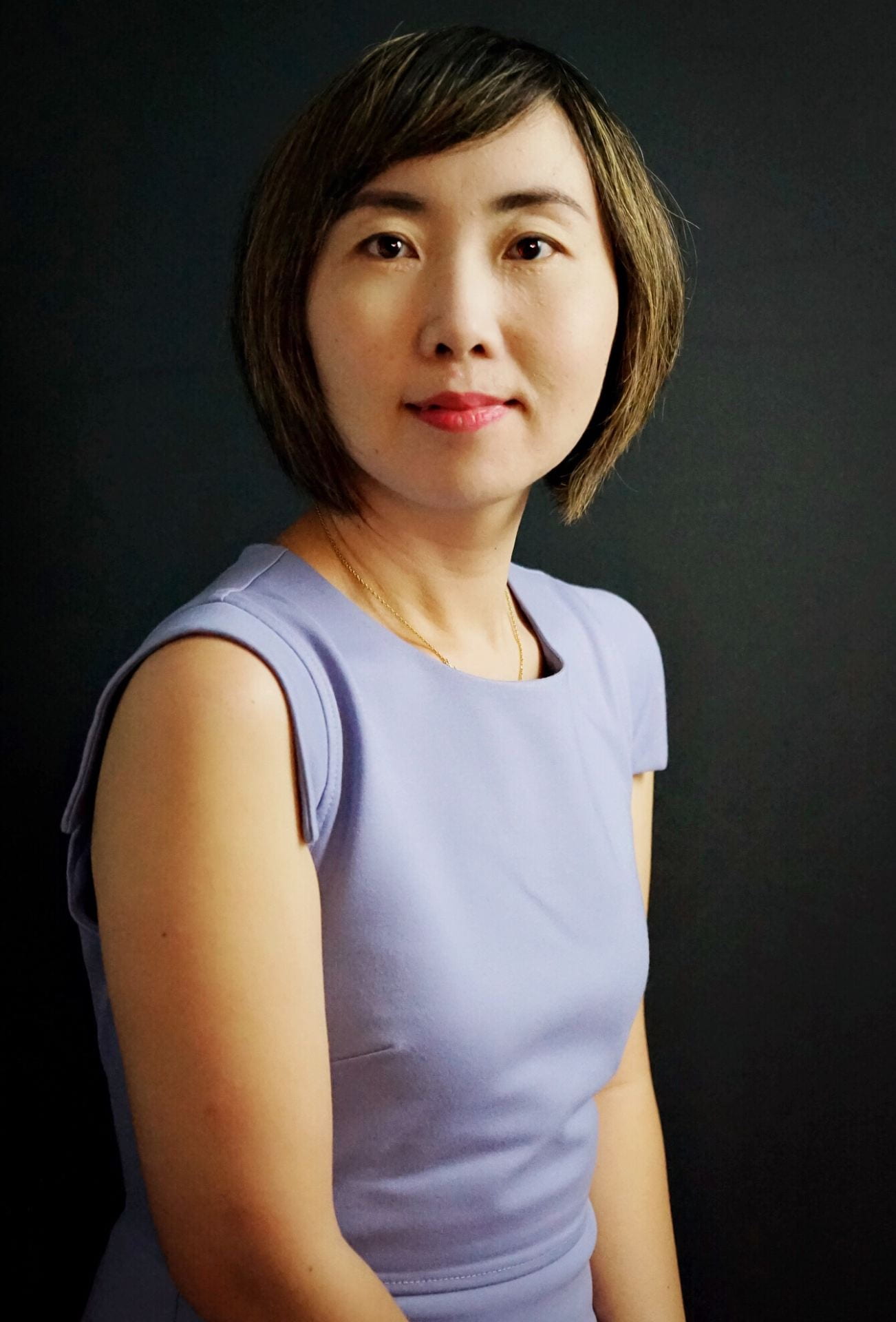
Maggie Xiaoyang Chen is a professor of economics and international affairs at George Washington University. Professor Chen’s areas of research expertise includes multinational firms, international trade, and regional trade agreements and her work as been published extensively in leading academic journals.
She has worked as an economist in the research department of the World Bank, a consultant for various regional divisions of the World Bank and the International Finance Cooperation since 2003, a contributor to the World Development Report and World Bank’s Latin America and Caribbean Flagship Report, and a trade policy consultant for the U.S. Congressional Budget Office. Professor Chen is also a co-editor of the Economic Inquiry. Professor Chen received her Ph.D and M.A. in Economics from the University of Colorado at Boulder and her B.A. in Economics from Beijing Normal University.

David Dollar is a senior fellow in the John L. Thornton China Center at the Brookings Institution and host of the Brookings trade podcast, Dollar&Sense. He is a leading expert on China’s economy and U.S.-China economic relations. From 2009 to 2013, Dollar was the U.S. Treasury’s economic and financial emissary to China, based in Beijing, facilitating the macroeconomic and financial policy dialogue between the United States and China. Prior to joining Treasury, Dollar worked 20 years for the World Bank, serving as country director for China and Mongolia, based in Beijing (2004-2009). His other World Bank assignments focused on Asian economies, including South Korea, Vietnam, Cambodia, Thailand, Bangladesh, and India. Dollar also worked in the World Bank’s research department. His publications focus on economic reform in China, globalization, and economic growth. He also taught economics at University of California Los Angeles, during which time he spent a semester in Beijing at the Graduate School of the Chinese Academy of Social Sciences in 1986. He has a doctorate in economics from New York University and a bachelor’s in Chinese history and language from Dartmouth College.
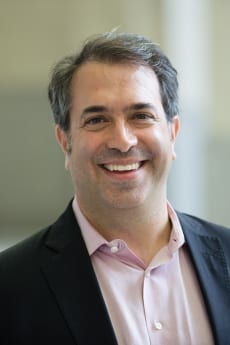
Stephen B. Kaplan is an Associate Professor of Political Science and International Affairs; and a faculty affiliate of the Institute for International Economic Policy. He is also a current global fellow at the Wilson Center. Professor Kaplan joined the GWU faculty in the fall of 2010 after completing a postdoctoral research fellowship at the Niehaus Center for Globalization and Governance at Princeton University. While completing his doctorate at Yale University, Kaplan also worked as a researcher for former Mexican President Ernesto Zedillo at the Yale Center for the Study of Globalization. Prior to his doctoral studies, Professor Kaplan worked as a senior economic researcher at the Federal Reserve Bank of New York, writing extensively on developing country economics, global financial market developments, and emerging market crises for more than a half-decade.

